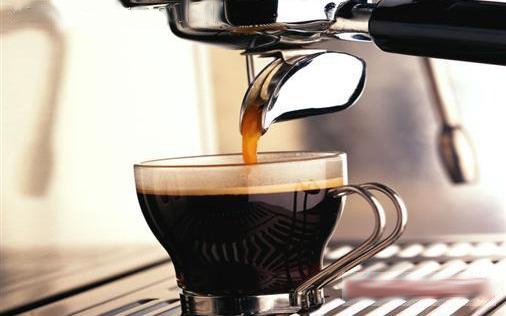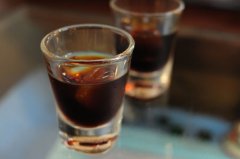How to do well the extraction technology of a cup of Espresso:Esp

Over the past two years, more and more friends have joined the ranks of espresso, which can be said to be an unprecedented increase. I would like to share some personal experiences and summaries here to avoid a large cultural background and serve only as a technical tutorial for a good drink or cooking a good dish.
Coffee powder that is fine enough and uniform enough
The extraction of esp has high pressure, so it is necessary to use enough fine powder. In the fine premise as far as possible uniform, so that the coffee pressed powder under the same pressure to get uniform extraction. This requires a bean grinder with good performance. The Italian bean grinder is mainly divided into two kinds of cutter head-parallel cutter head and conical cutter head. The advantage of parallel cutter head is that it can ensure the uniformity of grinding. The powder produced by the tapered cutter head is composed of particles of different sizes, since the coffee powder is uniform, why use the conical cutter head? Because the cone knife grinding uses a low-speed high-torque motor, the grinding is fast and not easy to heat, so the advantage of the cone knife is more obvious when grinding a large number of coffee powder. In addition, some people think that although the cone knife grinding powder is not uniform, it can lead to more levels of flavor, while others say that uneven is easy to lead to miscellaneous smell, so the cone knife itself is a more controversial type, different opinions.
Personally, I am not a pure supporter of conical knives or flat knives. If it is for personal use or does not need a lot of grinding, the calorific value can be ignored. Then I will recommend the flat knife bean grinder, stable, uniform grinding is the premise to ensure quality. If it is a commercial place for grinding a large number of powder, you should choose a cone knife bean grinder with a faster grinding speed and not easy to heat. According to the domestic coffee market, flat Dao is more wise as the mainstream.
Most of the grinding knives are made of high hardness stainless steel. nowadays, some manufacturers offer ceramic or titanium alloy cutterheads, which are not easy to produce high heat, while titanium alloy has more durable properties and can be upgraded according to their own needs.
2. Fixed amount of powder
Fixed amount of powder, only adjust the size of the powder is conducive to the formation of stable extraction habits. This is of great help to the standards of store products. It is also convenient for individuals to quickly find the best powder thickness when changing different beans. Take me, for example, the common powder quantity of double is 16g.
Third, the strength and techniques of powder pressing that are suitable for you.
When you want to present a skill in words, you will find a lot of inconvenience. In terms of powder pressing, it is roughly divided into coarse powder heavy pressure school, fine powder light pressure school and non-pressure school, no matter which school you belong to can make different styles of perfect esp, of which the non-pressing powder school is the most minority and difficult to master, because it takes a lot of energy and time to find the critical point of powder quantity and powder thickness, and has certain requirements for bean grinders. The advantage of non-pressing powder is that once found, the failure of powder pressing can be avoided. But because there are so many variables in making a cup of coffee, it's okay to be proficient in light pressure and heavy pressure as a new experience, but if you don't press here, you won't recommend it.
Fourth, stable cooking pressure
Italian coffee machine uses pump to generate pressure, which is roughly divided into shock type and rotary type. Vibrating type is compact in size and low in cost, which is mostly used in household machines, such as XX coffee machine, pump pressure 15bar or pump pressure 19bar, which means that the peak pump pressure can reach 15bar or 19bar, but does not stabilize in a single value, but fluctuates between 1--15bar. This is also one of the reasons why the coffee made by household machines has a lot of miscellaneous flavor. Similarly, this is another basis that I do not think the cone knife grinder can bring a deep flavor, because if this logic is true, the unstable pressure of the vibration pump will also bring different levels of flavor. The lower the controllability in brewing, the worse the taste stability.
The rotary pump is mainly used in commercial machines and high-end professional household machines because of its large size. The pressure can be stabilized within a fixed value, from a straight point of view, the pressure curve of the vibrating pump is fluctuating, while the pressure curve of the rotary pump tends to be a straight line, the two are not the same. The use of rotary pump is a major element of stable extraction. In addition, the noise of rotary pump is much lower than that of vibrating pump, and some vibrating pump noise makes people feel unsafe and cheap, and noise can also affect people's mood, so it is not recommended to use vibrating pump coffee machine as a business machine.
At present, the standard of esp brewing theory is 9 ±1 and 9 ±0.5,9 ±2 respectively. Here in order to facilitate the memory and understanding of the individual is set at 9.
Stable brewing water temperature
The higher the brewing water temperature, the lower the sour taste, the higher the bitter and scorched taste, the lower the water temperature, and the higher the acidity, the lower the bitter and scorched taste, so the ideal water temperature should be adjusted according to different beans and formulations, such as lower water temperature for deep baking and higher water temperature for shallow baking. My most commonly used water temperature is 91 degrees.
Water temperature control of most household machines due to the use of heating blocks or smaller boiler water temperature is difficult to stabilize, in the process of extraction, the temperature difference can be up to 10 degrees deviation, even if the operator is more careful, can not overcome this hardware bottleneck. And large-scale mainstream commercial machines (heat exchange type) also have a temperature difference of 4-8 degrees, so there are considerable requirements for the operator's control. For coffee machines with independent PID temperature control in double boilers and multi-boiler systems, it is relatively easy to stabilize the temperature. The Aibao twin boilers I use can make the temperature difference of a cup of esp extraction only 0.5 degrees Celsius. Higher-end coffee machines such as synesso, slayer, etc., can control the temperature within 0.1C, while the resolution limit of human taste for temperature effect is about 0.3C. So 0.1 degree temperature control is perfect for human beings.
6. Fixed extraction quantity
The more factors we control, the more likely we are to get a good cup of coffee.
Although it is possible to judge whether to continue or stop the extraction according to the state of coffee outflow, breaking through the theoretical framework requires sufficient brewing experience, and it is more practical to give yourself a stable framework at the beginning.
More widely used amount of extraction
Single espresso 25-30 seconds extraction of 25-35ml Coffee
Double espresso 25 seconds-30 seconds extraction of 45-55ml Coffee
Seventh, the overall good heat conduction material
In the coffee machine hardware that we often talk about, the most common mention is the size of the boiler and the pump (pump). In fact, there are many other things to pay attention to in the coffee machine. The design of different pipes of the material will affect the effect of a cup of coffee. This is also why responsible manufacturers use copper or stainless steel as the main material of the coffee machine. First, copper has good thermal conductivity (to ensure uniform and stable temperature) and ductility, and metal fatigue is not easy to occur even in frequent alternation of cold and heat. Stainless steel is more hygienic and durable. Because stainless steel appeared relatively late, many manufacturers still use traditional copper to make coffee machines. Materials such as plastic and aluminum are completely unreliable, but household machines are commonly used and cheaper.
All of the above are based on personal experience. Getting the perfect espresso may take more effort than you can imagine, but you'll end up with more fun and delicious coffee.
Important Notice :
前街咖啡 FrontStreet Coffee has moved to new addredd:
FrontStreet Coffee Address: 315,Donghua East Road,GuangZhou
Tel:020 38364473
- Prev

Delicious coffee making: technology is the soul of coffee
When we go to a cafe, we often see a double-ended machine and a professional bean grinder, but does the coffee satisfy you? maybe you will say: the beans are not good enough for me. With a good machine, you can't make good coffee without good beans. I think everyone basically knows this, but with good machines and good beans, can you certainly make good coffee? In the last two years, everyone should know
- Next

Three coffee brewing methods commonly used in cafes
Filter paper brewing: the easiest brewing method features the simplest coffee brewing method. Filter paper can be used immediately discarded, more sanitary, but also easy to clean up. The amount of boiled water and the method of injection can also be adjusted. One serving can also be brewed, which is the best brewing method for a small number of people. A dripper has one hole and three holes. Three holes are used here. for injecting boiling water
Related
- Beginners will see the "Coffee pull flower" guide!
- What is the difference between ice blog purified milk and ordinary milk coffee?
- Why is the Philippines the largest producer of crops in Liberia?
- For coffee extraction, should the fine powder be retained?
- How does extracted espresso fill pressed powder? How much strength does it take to press the powder?
- How to make jasmine cold extract coffee? Is the jasmine + latte good?
- Will this little toy really make the coffee taste better? How does Lily Drip affect coffee extraction?
- Will the action of slapping the filter cup also affect coffee extraction?
- What's the difference between powder-to-water ratio and powder-to-liquid ratio?
- What is the Ethiopian local species? What does it have to do with Heirloom native species?

